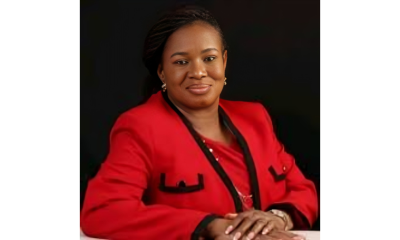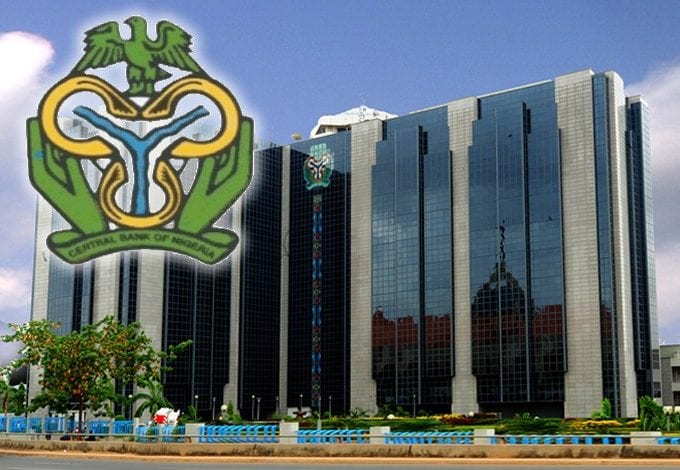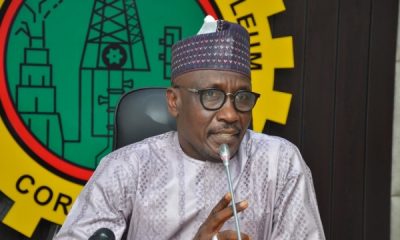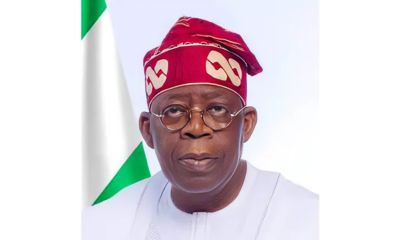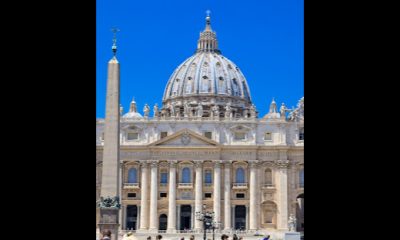COVER
NNPC Obtains $1.16m USTDA Grant for 1,300MW Gas Power Plant
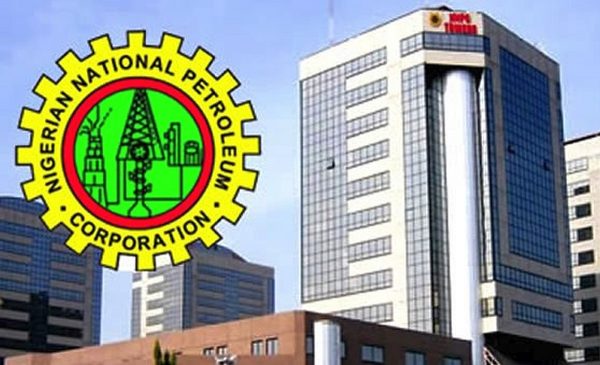
By Mathew Dadiya, Abuja
As part of efforts to guarantee energy security for the country in keeping with its mandate, the Nigerian National Petroleum Corporation (NNPC) has secured a grant from the United States Trade and Development Agency (USTDA) to facilitate the establishment of a 1,350Megawatts (MW) Independent Power Plant in Abuja.
Speaking at the signing ceremony of the grant which held on the sidelines of the ongoing Nigeria International Petroleum Summit (N.
I.P.S) in Abuja on Tuesday, Group Managing Director of the NNPC, Mallam Mele Kyari, said the $1.16million USTDA grant would be deployed for the provision of technical, economic and financial analyses necessary for the development of the combined cycle, natural gas-fired power plant to be sited in Gwagwalada, a satellite town of Abuja.Mallam Kyari stated that the power plant, when completed, would deliver power to the national grid for onward transmission to Nigerians to facilitate industrial growth and reduce poverty in the country.
“We all know that there must be a framework. We all know that there are so many delayed projects in this Industry that have to do with delivering gas to the domestic market for so many reasons. One of them is inability to secure financing and other fiscal issues that we are all familiar with and they have to be resolved. What we have to do is to create infrastructure that will deliver gas to the domestic market and we are already doing that,” the GMD assured.
He informed that NNPC under his watch was committed to providing the necessary infrastructure that would reduce the power deficit and also reduce to the barest minimum gas flaring which impacts the environment negatively.
The NNPC helmsman stated that the corporation had already delivered the Oben-Obrikun and Obiafu (OB3) gas pipelines, expanded the Escravos-Lagos Pipeline System 2 (ELPS 2) with her partners and about constructing the Ajaokuta-Kaduna-Kano (AKK) pipeline which would deliver gas from the OB3 line to Kano.
He added that along that corridor, the plan is for the NNPC to build three independent power plants in Abuja, Kaduna and Kano, stressing that the strategy would enable the debottlenecking of power into the grid to ensure stable power supply.
Mallam Kyari said the construction of the AKK pipeline would lead to the establishment of industries along the route of the pipeline all the way to Kano, noting that the spin-off effect would be prosperity for the people.
“We know that gas is the cleanest form of energy. We also know that we are flaring some of the gas which we are putting up strategies to stop. By stopping gas flaring, we create wealth, we create prosperity and we have to deliver power to the country. We also know that the focus of the Federal Government is to deliver power to the people as quickly as possible and also deliver gas to our domestic market,” Mallam Kyari submitted.
Earlier, the United States Ambassador to Nigeria, Mary Beth Leonard, said the grant was part of America’s intervention to reduce the power deficit, create jobs and support the expansion of gas infrastructure in Nigeria.
On his part, the Director of USTDA, Tom Hardy, stated that the grant of $1.16million to the NNPC was an American power solution geared towards boosting the nation’s economy.
Managing Director of General Electric (GE) Gas Power System in Nigeria, Mohammed Mijindadi, expressed the readiness of GE to deliver on her mandate.
Highpoint of the event was the signing of the grant documents by the Managing Director of NNPC Gas and Power Investment Company (GPIC), Engr. Husaini El-Yakubu, for NNPC and Tom Hardy for USTDA.
In a related development, the Group Managing Director of NNPC, Mallam Mele Kyari, has restated the commitment of the corporation to deliver sufficient energy for the economic and industrial growth of the nation.
In a presentation at the ongoing Nigeria International Petroleum Summit (N.I.P.S.), the GMD disclosed that the corporation was doing a lot to ensure national energy security.
He said NNPC was opening up its operations to allow for transparency and stability that would attract the right kind of investments that would enable it meet the needs and aspirations of its over 200 million shareholders.
Speaking on the much touted global energy transition from fossil fuels to renewable energy, Mallam Kyari said the reality on ground indicates that fossil fuel would remain the main source of energy for a long while, noting that the focus should be on the cleanliness of the fossil fuel rather than the elimination entirely as wrongly projected.
He disclosed that informed perspective and forecast provided by various researchers and Industry analysts indicate that by 2050 the global consumption of crude oil would remain about 100 million barrels per day.
He added that most forecasts indicate that by 2040 renewables would only account for about 20 per cent of global energy needs which means that fossil fuel would continue to deliver at least 70 per cent of global energy needs within the period under forecast.
Mallam Kyari said the NNPC was committed to using the nations vast hydrocarbon resources to add value and create wealth and prosperity for the government and people of Nigeria.
COVER
LP Crisis: Nenadi Usman Begins Disciplinary Action against Abure

By David Torough, Abuja
The Nanedi Usman-led National Executive Council (NEC) of the Labour Party has set up a five-man disciplinary committee to investigate alleged gross misconduct against a factional leader, Julius Abure.The NEC also gave Abure 48 hours to explain why disciplinary actions should not be taken against him over the alleged misconduct.
Chairman of the party’s Caretaker Committee, Sen. Nenadi Usman made this known on Monday at a news conference in Abuja. Usman said that the action was in the exercise of the NEC’s constitutional mandate and in strict accordance with the disciplinary provisions of the party’s 2019 Constitution, as amended.“The NEC in session hereby announces the commencement of disciplinary actions against Mr Abure.“These actions have started with the constitution of a special investigative committee to review the actions of Mr Abure, as it affects the image and integrity of the party.“NEC gives Mr Abure 48 hours’ notice to show why disciplinary actions should not be taken against him for his numerous acts of gross misconduct against the party.“They are actions that threaten the unity, integrity and public image of our party,” she said.Usman further stated that NEC took the decision due to Abure’s continued impersonation and misrepresentation of the office of the National Chairman.“We can no longer stand by while the values we hold dear – transparency, discipline and democratic accountability – are undermined from within.“This press conference is convened to address the growing concern over the misconduct and internal rascality plaguing our party.“At a time when Nigerians are yearning for credible leadership and they see the Labour Party as a beacon of hope, it is regrettable that we must battle internal sabotage from those who should know better.“Rather than unifying the party, he undermines it. Rather than attract credible Nigerians to come and join, he alienates them. Instead of advancing our collective vision, he pursues narrow personal ambitions,” Usman said.The former Finance Minister said it was most painful that Abure targetted those who had brought credibility and national visibility to the party.“Mr Peter Obi and Gov. Alex Oti represent the aspirations of a new Nigeria. Gov. Otti stands out today as one of the most effective and respected governors in the country.“These men have sacrificed, not for personal gain but to give the Labour Party and Nigeria a real shot at transformation. What they demand is simple: a party that is transparent, democratic and accountable.“Instead of embracing this vision, Abure chooses confrontation and chaos. We say today, this must stop,” she said.Usman said that a formal notice of the action would be sent to Abure.The committee is chaired by Sen. Ireti Kingibe, with Peter Ameh as the Secretary.“Mr Abure is hereby warned to desist from parading himself as the National Chairman of the Labour Party or impersonating the office in any form.“The apex court of the land has clearly and finally nullified his claim to leadership and his tenure has long expired by the passage of time,” Usman said.Recall that the Abure-led NEC had recently set up a disciplinary committee to probe what it called Otti’s anti-party activities.Speaking further, Usman said that investigations had revealed that Abure illegally issued State Executive Committee letters every three months, in breach of LP’s constitutional provisions.These, the former minister said, had been nullified.She added that the leadership of the party would launch a nationwide membership registration and revalidation exercise in the coming weeks.Responding to questions on the likelihood of the party going into coalition with others, the party’s National Secretary, Sen. Darlington Nwokocha, said that LP would only welcome any coalition that would be beneficial to it.Labour Party Suspends Otti, Nwokocha, Kingibe, OthersThe Labour Party has announced the indefinite suspension of six prominent members, including Abia State Governor Alex Otti, Senators Darlington Nwokocha and Ireti Kingibe, over alleged anti-party activities.Others suspended were Victor Afam Ogene, Amobi Ogah, and Seyi Sowumi.The party’s National Executive Council said the decision followed the recommendations of a five-man Disciplinary Committee set up on May 2, to probe allegations of anti-party conduct.In a statement by the National Secretary, Umar Farouk Ibrahim yesterday, the party said the suspension takes immediate effect and bars the affected members from participating in any Labour Party activities.The statement read, “Recall that last Friday, 2nd of May 2025, the National Executive Committee (NEC) of the Labour Party set up a Five man Disciplinary Committee headed by the Deputy National Chairman, Dr.Ayo Olorunfemi, Alhaji Umar Farouk Ibrahim, the National Secretary and three others to investigate Abia State Governor, Dr. Alex Otti and any other party members over allegations of anti-party activities.“The Disciplinary Committee has concluded their assignment and has submitted their report to the party leadership. The National Executive of the party met today May 7th, 2025 and after exhaustive deliberation in line with powers donated to it by the Party Constitution has ratified the recommendation as submitted by the Disciplinary Committee.“Consequent upon that, the following members of the party have been suspended from the party and all its activities, indefinitely and with immediate effect. 1. Dr. Alex Otti; 2. Senator Ireti Kingibe; 3. Senator Darlington Nwokocha; 4. Hon. Victor Afam Ogene; 5. Hon. Amobi Ogah; 6. Hon. Seyi Sowunmi.”The party also addressed the omission of Nenadi Usman from the suspension list, stating that she is not a registered member of the Labour Party, but a supporter of its 2023 presidential candidate.“We are aware that she is a member of the Obidient Support group that worked and is still working for the party’s 2023 presidential candidate. We will therefore not honour her with any sanction being not a member of the party,” the statement added.It also accused Usman of lacking the moral authority to comment on corruption, citing her alleged plea bargain with the Economic and Financial Crimes Commission and purported asset forfeitures.“She should also tell Nigerians how she acquired her radio station in Kaduna, all her properties all over Nigeria and abroad, her companies in Cameroon, including her plantations. Nenadi Usman lacks the moral capacity to commence any probe or even talk about corruption,” the statement added.Reaffirming its stance on political alliances, the Labour Party said it would not join any coalition or merger ahead of the 2027 general elections.“Labour Party intends to prosecute the 2027 general election as stand alone party and no further discussion will be entertained on this matter,” the statement concludedCOVER
SEC Begins Tech Adoption Assessment for Capital Market

By Tony Obiechina, Abuja
The Securities and Exchange Commission (SEC) has begun the technology adoption assessment for registered capital market operators (CMOs).According to the SEC in a Circular yesterday, the exercise was to assess the adoption of advanced technologies among registered CMOs.
“The following technology adoption survey is designed by the Commission to assess the adoption of advanced technologies among registered Capital Market Operators (CMO),” the notice reads. “All registered CMOs should access and complete the survey by logging in to the e-portal https://eportal.sec.gov.ng/survey with their current access credentials.This survey will be available for two weeks, between 5-20 May 2025.”The SEC called on all capital market operators to direct their enquiries to innovation@sec.gov.ng.The director-general of the SEC, Dr. Emomotimi Agama had recently urged stakeholders in the capital market to embrace innovation as a catalyst for growth, increased efficiency, heightened transparency, and resilience.He disclosed that the SEC is aware of the new financial products and services that are emerging due to technology and is committed to adapting its regulations to address these innovations.According to him, the Commission has a three-pronged approach to regulating innovation: safety, market deepening, and solutions to problems. This has always, and will continue to help create a more efficient and reliable capital market ecosystem.“In the efforts to support the innovation and growth in the market, the SEC had established a programme of assessment called Regulatory Incubation to help new FinTech businesses. The programme allows them to operate for one year within a highly fortified and limited regulatory perimeter while the SEC develops applicable rules that address these innovative technologies. The incubation programme helps ensure investor protection and market stability while fostering financial technology advancements in the Nigerian Capital Market.”COVER
United Capital Declares N5.89bn PAT in Q1
United Capital Plc, a pan-African financial services group, has posted N5.89 billion as its Profit After Tax (PAT) for the first quarter ended March 31, 2025.This is against the N3.59 billion recorded within the same period in 2024.The group in a document posted on the Nigerian Exchange Group (NGX) platform yesterday, said the figure represented a 64 per cent increase from the amount recorded within the same period in 2024.
The group also declared N13. 1 billion as its gross earnings for the first quarter representing a 113 per cent increase from the N6.1 billion posted for the corresponding period of 2024.It further posted N6.73 billion as its Profit Before Tax (PBT) for the first-quarter, representing 65 per cent increase from the N4.1 billion declared within the same period last year.The United Capital Plc declared that its total assets stood at N1.72 trillion as at March 31, representing a one per cent increase from the N1.7 trillion recorded as total asset as at December.It said the shareholders’ funds grew to N161.2 billion compared to N133.50 billion recorded in December.The group added that the growth in shareholders’ funds represented a 21 per cent increase from the amount also recorded in December.United Capital Plc offers Investment Banking, Asset Management, Trusteeship, Securities Trading, Wealth Management, Consumer Finance and Microfinance Banking.
